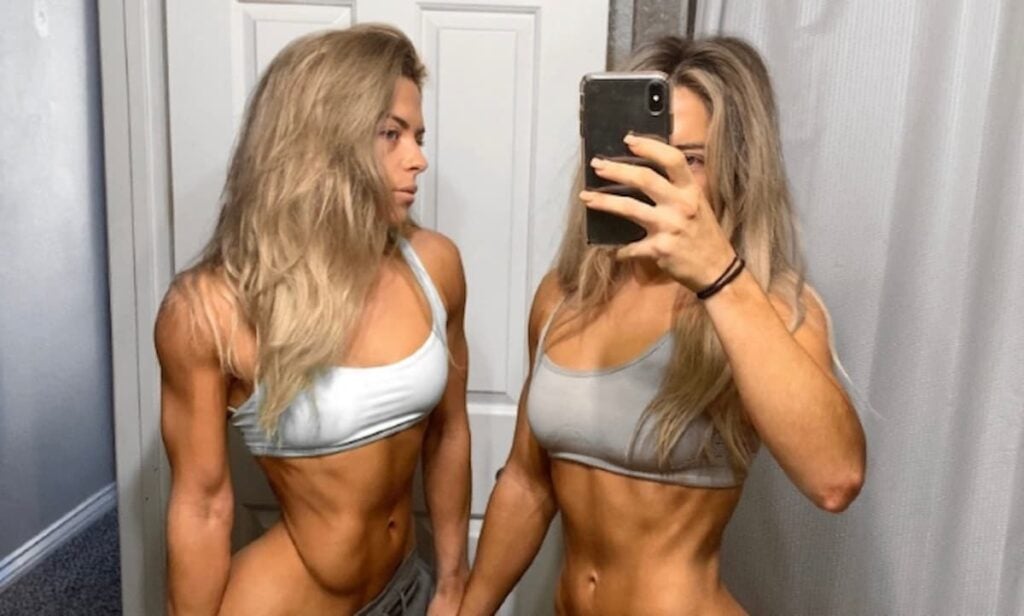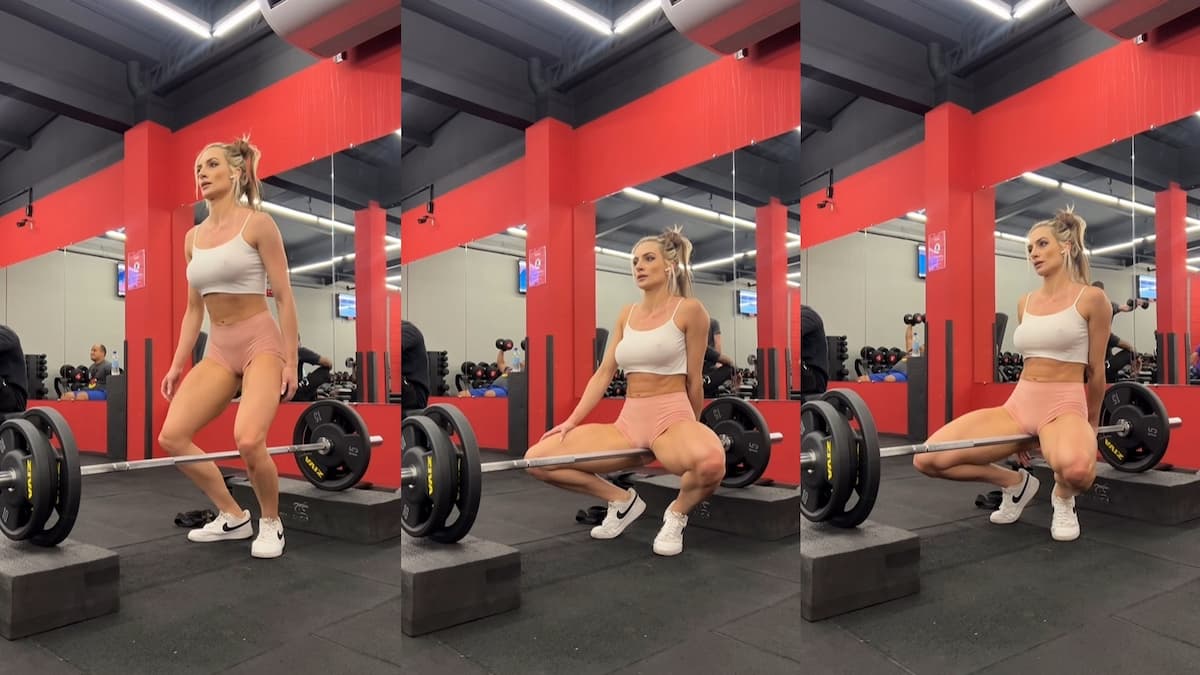Fitness influencers have long walked a fine line between inspiration and irresponsibility, but a recent controversy surrounding California influencer KkFit has stirred heated debate within online communities, especially on Reddit’s r/gymsnark. At the center of the backlash is the pair’s promotion of a new cutting program using images that fans and critics alike recognize as being from a time when the sisters publicly admitted to struggling with disordered eating.
The promotional material in question features revealing images highlighting ultra-lean physiques. The issue, as many Reddit users pointed out, is that these photos date back to a period when the KkFit twins themselves acknowledged dealing with eating disorders. Critics argue that using these photos to market a fat-loss product is not only misleading but also deeply irresponsible.
“No amount of money is worth your dignity,” wrote one user. “Selling the programs to others that contributed to your eating disorder AND sharing photos of you deep in disordered eating as a way to sell it is a new low.”
Repackaging the Disorder?
Several commenters accused the duo of repackaging a period of illness as a desirable goal, effectively glamorizing disordered behavior in the name of brand growth and sales. “Are they rebranding their EDs as cutting?” one user wrote, echoing a sentiment shared across hundreds of upvotes.
Others pointed to the dissonance between KkFit’s previous transparency about their mental and physical health and their current messaging. The implication that these aesthetics are aspirational or achievable through their program raises red flags, especially for vulnerable followers who may be struggling with similar issues.
“Promoting that body, knowing it came from unhealthy habits, is just wrong,” another user added. “They should know better.”
The images themselves didn’t help. Many users found them not only triggering but overtly sexualized, with several highlighting the awkwardness of the twins posing in what some described as “near nudes” together.
“Taking near nudes with your sister is… a choice,” said one comment with hundreds of upvotes.
A recurring complaint was the performative “pants-pulling” pose, which several users described as tasteless and tone-deaf.
“If you’re going to promote a fitness program, you don’t need to sexualize yourself in the process,” one Redditor noted. “This just reeks of desperation.”
This situation taps into a broader issue within the influencer and fitness industries: the commodification of trauma. What was once positioned as a story of personal struggle and healing is now seemingly being leveraged for profit, leaving audiences to question the authenticity of the recovery narratives these influencers previously promoted.
“They are the epitome of the fitness influencer blueprint,” one commenter summarized. “Gain a following when it’s easy to stay lean, push unsustainable advice, crash, rebrand as ‘hormone-aware’ or ‘balanced,’ and then sell the same advice all over again.”
Where Does Accountability Begin?
The controversy has reignited discussions around accountability and transparency in the fitness influencer space. At a time when discussions around body image and mental health are more important than ever, many argue that influencers have a responsibility to consider the implications of their messaging—especially when their platforms reach millions.
KkFit has yet to respond to the backlash. But whether they address it publicly or not, the fallout from this controversy is likely to leave a lasting mark… not just on their brand, but on how audiences continue to scrutinize the blurred line between authenticity and marketing in the influencer world.








